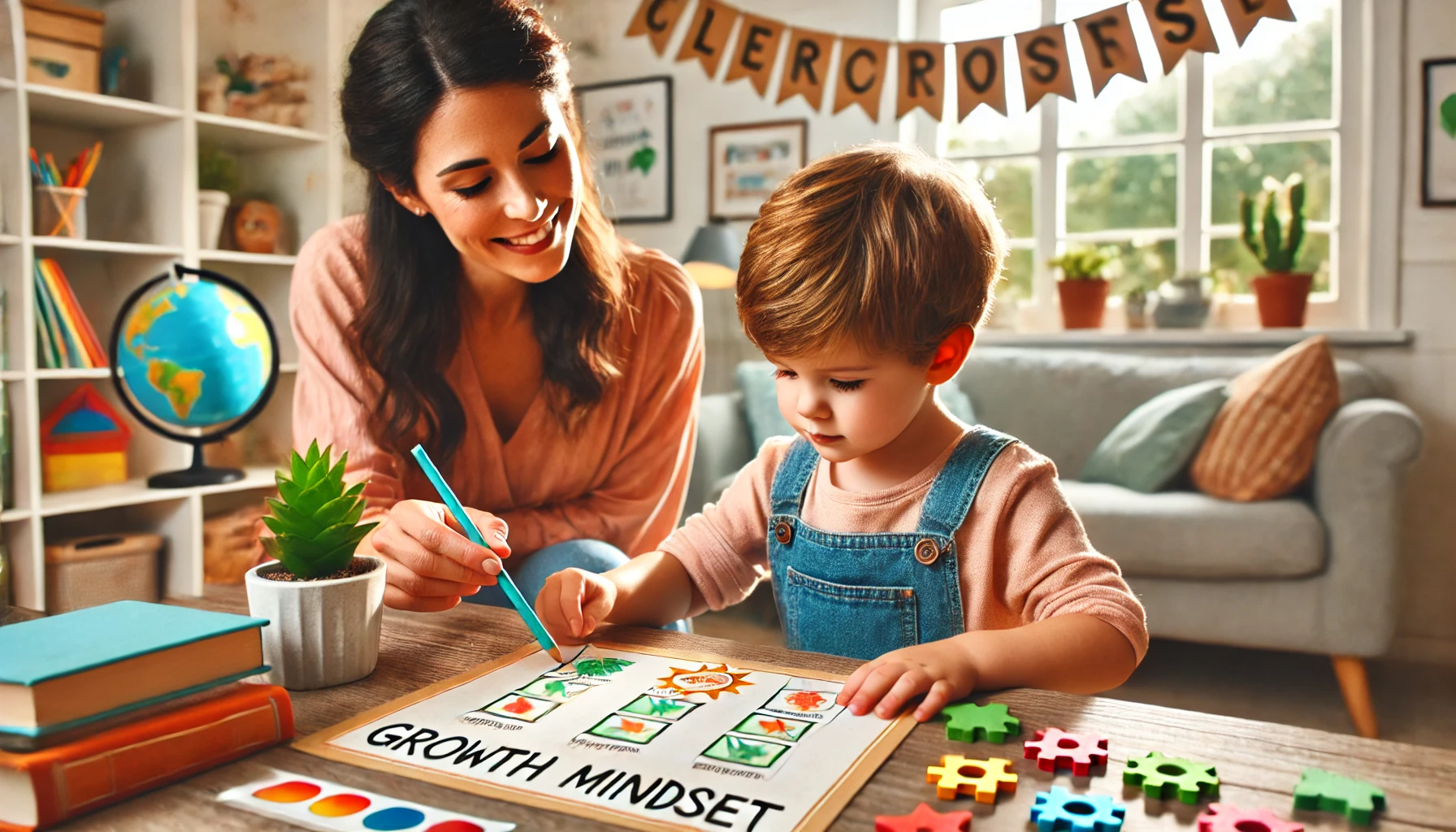How to Encourage a Growth Mindset in Young Children at Home
A growth mindset is the belief that abilities and intelligence can be developed through effort, practice, and learning from mistakes. Teaching young children to embrace challenges, persist through difficulties, and view failures as learning opportunities helps them develop resilience and a positive attitude toward learning. In this article, we’ll explore effective ways to foster a growth mindset in children at home.
Why a Growth Mindset is Important
- Encourages resilience – Helps children keep trying even when things are difficult.
- Promotes lifelong learning – Teaches kids to see challenges as opportunities for growth.
- Develops problem-solving skills – Helps children approach obstacles with curiosity and determination.
- Boosts confidence – Encourages kids to take on new challenges without fear of failure.
- Enhances motivation – Instills a love for learning and self-improvement.
1. Praise Effort, Not Just Results
Encouraging children to value effort over outcomes helps them focus on learning rather than perfection.
Activity Idea:
- Instead of saying, “You’re so smart,” try “I love how hard you worked on that puzzle!”
- Highlight progress by saying, “You couldn’t do this last week, but look how much you’ve improved!”
- Encourage persistence by celebrating small achievements along the way.
What Kids Learn:
- The importance of practice and dedication
- Confidence in their ability to improve
- Motivation to keep trying despite setbacks
2. Teach Kids That Mistakes Help Us Learn
Children should see mistakes as part of the learning process rather than as failures.
Activity Idea:
- Share personal stories of times when you made a mistake and learned from it.
- When your child makes a mistake, ask, “What can we learn from this?”
- Read books about characters who overcome challenges through perseverance.
What Kids Learn:
- Resilience and problem-solving
- Positive response to setbacks
- Confidence in trying new things
3. Encourage Trying New Things
Stepping out of their comfort zone helps children build confidence and adaptability.
Activity Idea:
- Introduce a new activity, such as learning to ride a bike or trying a new food.
- Encourage them to attempt challenging puzzles, crafts, or games.
- Use phrases like, “It’s okay if it’s hard at first. You’ll get better with practice.”
What Kids Learn:
- Adaptability and willingness to learn
- Courage to try unfamiliar activities
- Self-belief in their ability to grow
4. Use “Yet” to Reinforce Growth
Adding “yet” to a sentence helps children understand that learning takes time.
Activity Idea:
- If your child says, “I can’t do this,” respond with, “You can’t do it yet, but you’re learning!”
- Create a “Things I’m Learning” chart where they list skills they are working on.
- Celebrate progress instead of just final achievements.
What Kids Learn:
- Patience and persistence
- The power of continued effort
- A positive attitude toward learning
5. Model a Growth Mindset Yourself
Children learn best by watching their parents and caregivers.
Activity Idea:
- When facing a challenge, say, “This is tricky, but I’ll figure it out!”
- Talk about your learning experiences and how you improved over time.
- Show perseverance by working through difficult tasks with a positive attitude.
What Kids Learn:
- How to handle challenges positively
- That everyone, even adults, is always learning
- The value of persistence
6. Foster Problem-Solving and Creativity
Encouraging children to think critically and explore different solutions builds a strong growth mindset.
Activity Idea:
- Ask open-ended questions like, “How do you think we can solve this problem?”
- Let children experiment with different ways to complete a task.
- Provide creative materials like building blocks or art supplies for open-ended play.
What Kids Learn:
- Critical thinking and adaptability
- Creative problem-solving skills
- Confidence in finding solutions
7. Encourage Reflection and Self-Assessment
Helping children reflect on their experiences builds self-awareness and a desire to improve.
Activity Idea:
- At the end of the day, ask, “What was something challenging you worked through today?”
- Have children journal or draw about something they learned.
- Encourage self-praise: “What are you proud of yourself for today?”
What Kids Learn:
- Self-reflection and goal-setting
- Recognition of personal progress
- The value of self-improvement
Final Thoughts
Encouraging a growth mindset in young children helps them develop resilience, confidence, and a love for learning. By praising effort, normalizing mistakes, and modeling persistence, parents can nurture a mindset that prepares children to face challenges with determination and enthusiasm.
